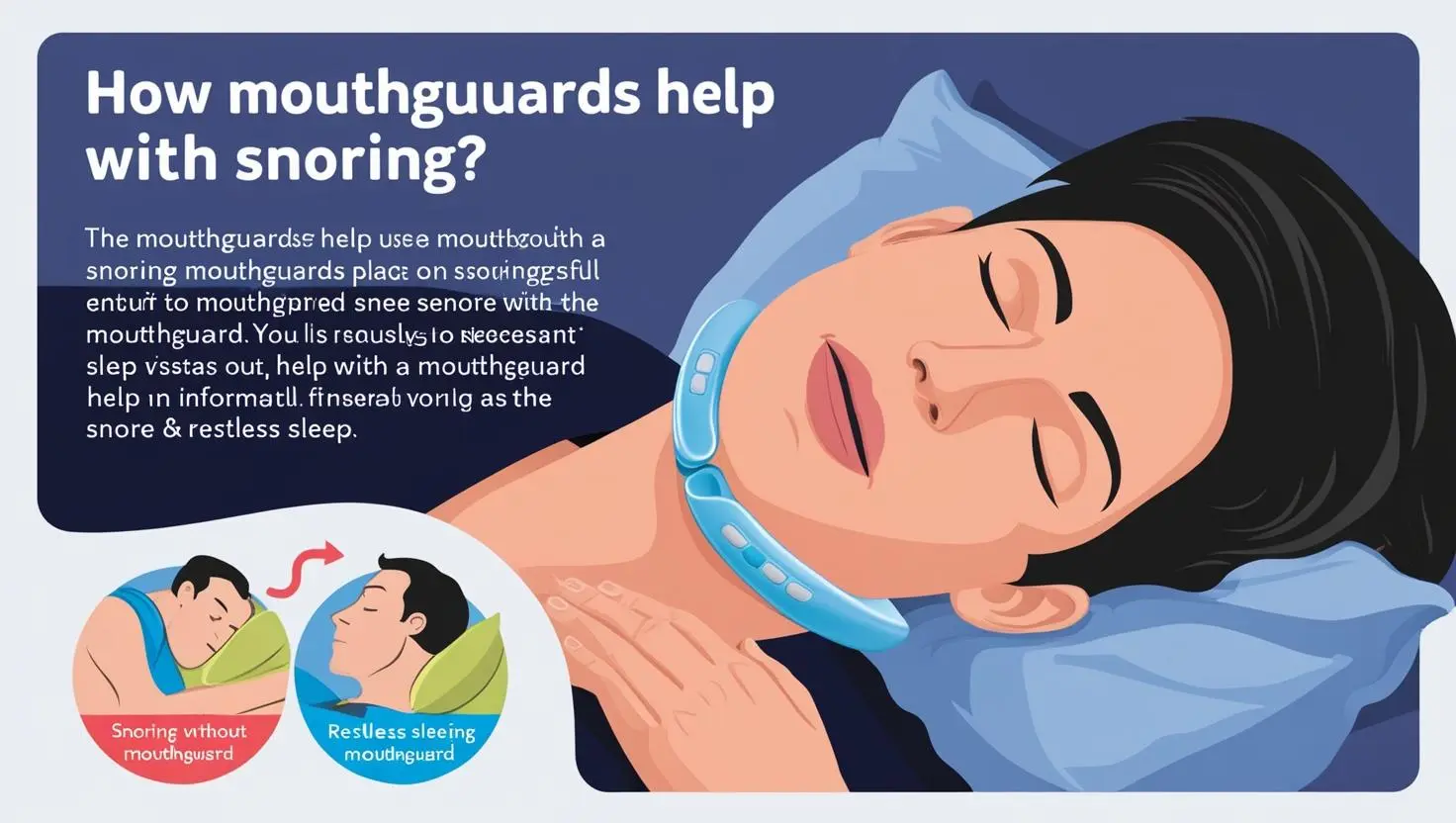Snoring is a common sleep disorder affecting millions of people worldwide. It not only disrupts the snorer’s sleep but can also disturb their partner’s rest. Many solutions exist to combat snoring, and one of the most effective options is the use of mouthguards. But do mouthguards help with snoring? This in-depth guide explores how mouthguards work, their effectiveness, types, benefits, and other considerations to help you determine whether they are the right solution for you.
Understanding Snoring and Its Causes
Snoring occurs when airflow is partially obstructed during sleep, causing vibrations in the throat tissues. Several factors contribute to snoring, including:
- Obstructed nasal airways – Due to allergies, colds, or sinus infections.
- Poor muscle tone in the throat and tongue – This leads to airway collapse.
- Obesity – Excess fat around the neck puts pressure on the airway.
- Sleep position – Sleeping on the back increases the likelihood of snoring.
- Alcohol consumption – Relaxes throat muscles, increasing airway obstruction.
- Sleep apnea – A more serious condition where breathing stops temporarily during sleep.
Understanding the root cause of your snoring can help determine the best treatment approach.
How Do Mouthguards Help with Snoring?
Mouthguards, also known as mandibular advancement devices (MADs) or tongue-retaining devices (TRDs), help reduce snoring by keeping the airway open. They work by:
- Repositioning the Jaw – Mandibular advancement devices slightly push the lower jaw forward, preventing airway collapse.
- Holding the Tongue in Place – Some mouthguards prevent the tongue from falling back and obstructing airflow.
- Reducing Throat Tissue Vibration – By keeping the airway open, mouthguards minimize the vibrations that cause snoring.
- Improving Airflow – With an open airway, breathing becomes smoother and more consistent.
Types of Mouthguards for Snoring
There are two main types of mouthguards designed to help with snoring:
1. Mandibular Advancement Devices (MADs)
These mouthguards resemble sports mouthpieces and are designed to push the lower jaw forward slightly. This adjustment prevents airway blockage and reduces snoring.
Best for: People with mild to moderate snoring and obstructive sleep apnea.
2. Tongue-Retaining Devices (TRDs)
TRDs hold the tongue in place using suction, preventing it from falling back and obstructing airflow. Unlike MADs, they do not affect the jaw position.
Best for: Those who snore due to tongue positioning rather than jaw misalignment.
The Effectiveness of Mouthguards for Snoring
Numerous studies and user testimonials support the effectiveness of mouthguards in reducing snoring. Some key findings include:
- Significant Reduction in Snoring: Research indicates that MADs can reduce snoring in up to 90% of users.
- Improved Sleep Quality: Many users report better sleep and increased energy levels after using a mouthguard.
- Effective for Mild to Moderate Sleep Apnea: While not a replacement for CPAP machines, MADs help people with mild obstructive sleep apnea.
However, effectiveness varies based on the individual’s anatomy, the severity of snoring, and the type of mouthguard used.
Benefits of Using a Mouthguard for Snoring
1. Non-Invasive Solution
Unlike surgery, mouthguards offer a non-surgical and painless method to manage snoring.
2. Affordable Compared to Other Treatments
Mouthguards are often more budget-friendly than CPAP machines or medical procedures.
3. Improves Relationship Sleep Quality
Snoring can be a major issue for couples. A mouthguard can significantly reduce noise, leading to better sleep for both partners.
4. Easy to Use and Portable
Mouthguards are small, lightweight, and easy to carry when traveling.
5. Reduces Health Risks Associated with Snoring
Chronic snoring is linked to conditions like high blood pressure, heart disease, and daytime fatigue. A mouthguard can help reduce these risks.
How to Choose the Best Mouthguard for Snoring
With many options available, consider these factors when selecting a mouthguard:
1. Custom vs. Over-the-Counter (OTC) Mouthguards
- Custom-Made Mouthguards: Designed by a dentist, these offer a perfect fit but can be expensive.
- Boil-and-Bite Mouthguards: OTC options that soften in hot water to mold to your teeth.
- Stock Mouthguards: Ready-made options, but they may not fit well.
2. Comfort and Material
- Choose a mouthguard made from soft yet durable material to ensure comfort.
3. Ease of Cleaning
- Look for a design that is easy to clean and maintain.
4. Breathing Holes
- Some devices come with breathing holes for those who breathe through their mouth at night.
5. FDA-Approved or Dentist-Recommended
- Opt for a device that meets safety and quality standards.
Potential Side Effects of Using a Mouthguard for Snoring
While mouthguards are generally safe, some users experience:
- Jaw Discomfort – Initially, some people may feel jaw soreness.
- Excessive Salivation or Dry Mouth – The mouthguard may alter saliva production.
- Tooth or Gum Irritation – A poorly fitted mouthguard may cause discomfort.
- Bite Changes – Prolonged use may slightly alter jaw alignment.
If side effects persist, consulting a dentist is recommended.
Alternative Snoring Solutions
If mouthguards don’t work for you, consider these alternatives:
- CPAP Machines – Best for severe sleep apnea.
- Nasal Strips or Sprays – Help with nasal congestion.
- Lifestyle Changes:
- Lose weight
- Avoid alcohol before bed
- Sleep on your side
- Practice throat exercises
Conclusion: Are Mouthguards a Good Solution for Snoring?
So, do mouthguards help with snoring?
Yes, they do! Mouthguards are an effective, non-invasive, and affordable solution for reducing snoring. They work by keeping the airway open, reducing throat vibrations, and improving airflow. While they may not work for everyone, especially those with severe sleep apnea, they are a great option for individuals with mild to moderate snoring.
If you or your partner suffer from snoring, trying a mouthguard could be the key to achieving a quieter, more restful night’s sleep. For best results, consult a dentist or sleep specialist to find the most suitable option for your needs.
Final Tip:
To enhance the effectiveness of your mouthguard, pair it with healthy sleep habits and lifestyle changes. A combination approach can significantly improve your sleep quality and overall health.
